Rob Stroup’s Favorite Turkey Calls
February 10, 2023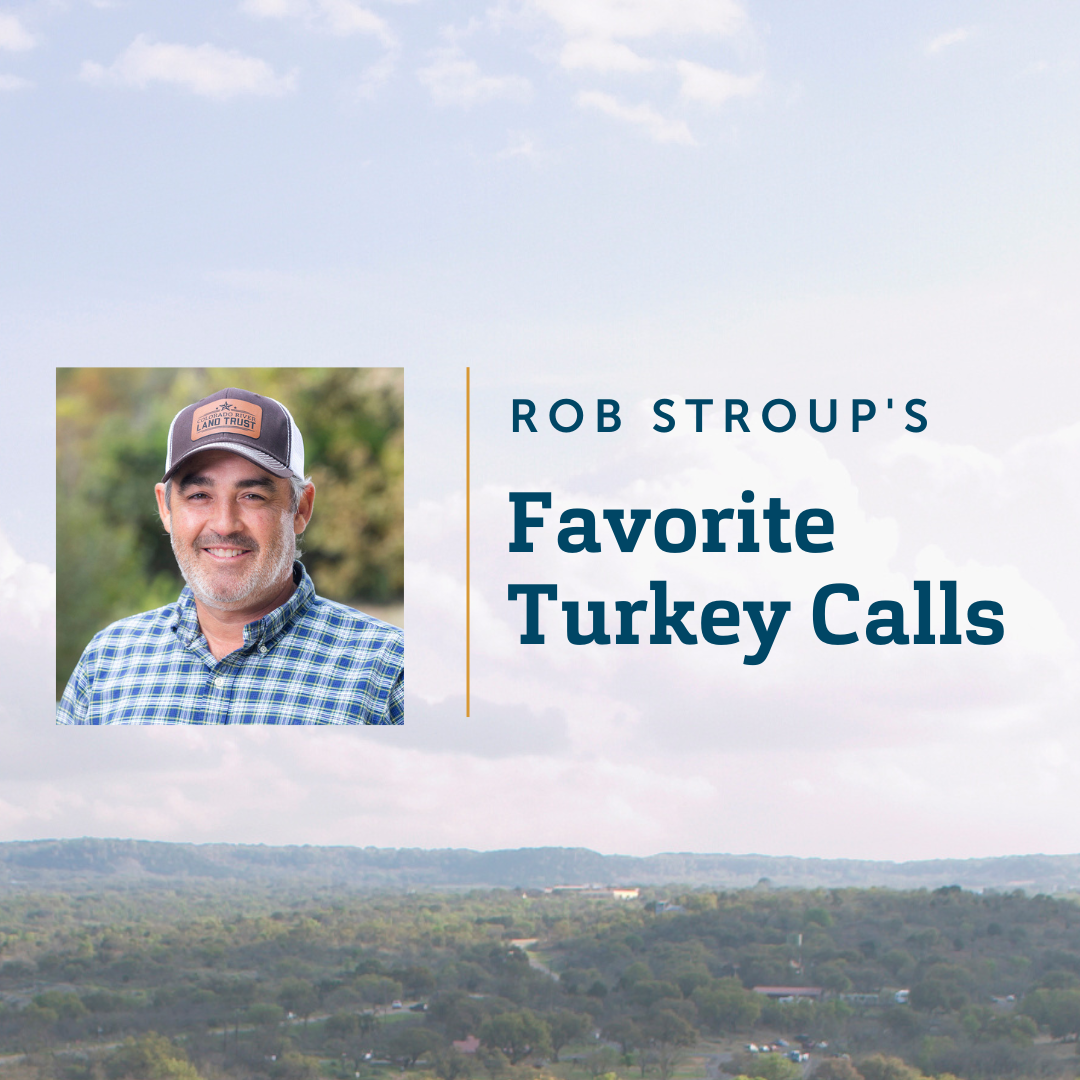
My Picks for Luring a Prized Tom
As Colorado River Land Trust’s Conservation Director, hunting, in all of its forms, is an integral and honorable part of our American outdoor heritage.
Growing up in Austin, turkey season meant an escape from the city to the solitude of the ranch. Saturday mornings, I could be found scouting the land and hunting wild turkey, whitetail, and whatever else was in season.
My love of hunting, specifically wild turkey in Texas, has remained a constant and it’s still one of my favorite things to do on a crisp morning. For me, turkey hunting symbolizes everything that I love about Texas – its wide-open spaces, varied landscapes, respect for the game, and the great value of freedom.
Turkey can be elusive, and hard to call in but mastering the turkey calls – diaphragms, locator, and box calls – will have you one step closer to bagging a tom. Each call serves a different purpose and slight variations in the calls can make all the difference. One of the most important and effective aspects of using turkey calls is perfecting the rhythm and the cadence whether you’re mimicking soft yelps, clucks, or purrs.
Using turkey calls can often be the necessary tool to get a turkey tagged, and it starts with understanding turkey sounds and the most effective calling methods.
When I am purchasing a new turkey call, I am looking for calls that can mimic authentic sounds and have the capability of making the calls at various volume levels—from soft to loud. With years of turkey hunting under my belt, my recommendations are based on my experience and the knowledge I’ve gained from using these calls in the field.
On that note, here are my favorite turkey calls:
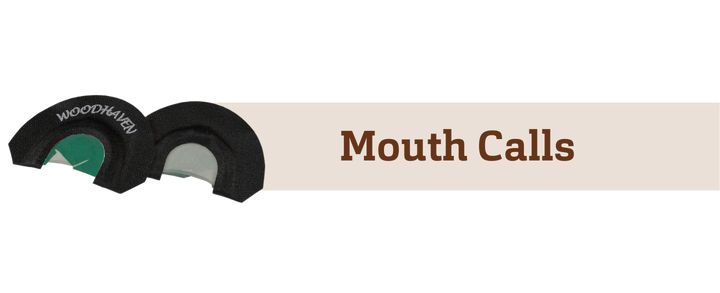
Diaphragm, or mouth calls, are one of the most effective types of calls for seasoned Texas hunters and new hunters alike. They’re a favorite for many reasons. Mouth calls produce some of the most realistic turkey sounds. Plus, you don’t have to worry about swapping a call for your gun. You run the call hands-free and stay ready to shoot.
My go -to-mouth call is the Woodhaven Ninja Hammer. It’s versatile, easy to use, and mimics the soft calls with the perfect amount of raspiness required. https://woodhavencustomcalls.com/shop/new-2018-ninja-hammer/
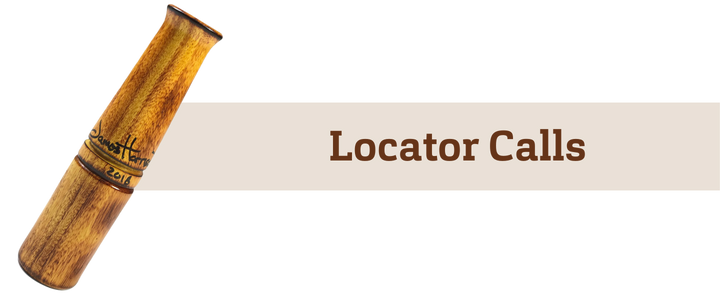
The locator call, as the name implies, is used to locate gobblers. These calls are not meant to lure a turkey; the intended use is to make the turkey think there’s an owl, crow, blue jay, or even another turkey nearby. The locator calls allow for the hunter to approach the turkey’s location, get close enough to set up the hunt, and call the gobbler into range. Most locator calls are mouth operated and create the sounds of anything but turkeys. A favorite of mine is the owl call. It’s most often used by hunters in the early morning when the gobblers are still roosting and gives the hunter plenty of time to be in a strategic position before fly-down time.
My favorite locator call is the Hooks Harrison Hoot’n Stick Signature Series Owl Locator Call. It’s user-friendly and is even hand-turned and signed by five-time Grand National Owl Hooting Champion, James Harrison. https://www.mackspw.com/Hooks-Harrison-Hootn-Stick-Signature-Series-Owl-Locator-Call
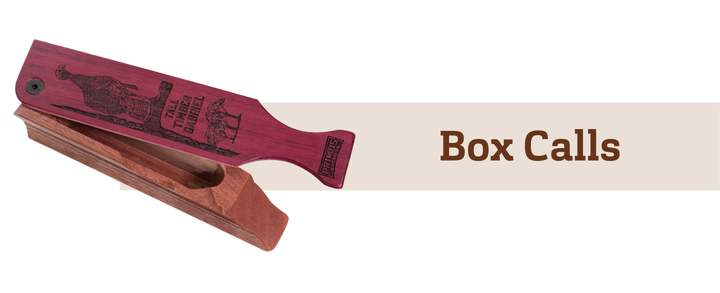
Box calls have been used in turkey hunting for over 100 years and are an integral part of the heritage of turkey hunting. Most box calls are made from solid wood and are very easy to use but they do require some hand movement. My pick for the box call is the Primos Tall Timber Gabriel Turkey Call. It has double thumbholes on the box to allow for easy and perfect clucks and cuts. https://www.primos.com/hunting-calls/turkey-calls/tall-timber-gabriel-turkey-call/PO-2915.html
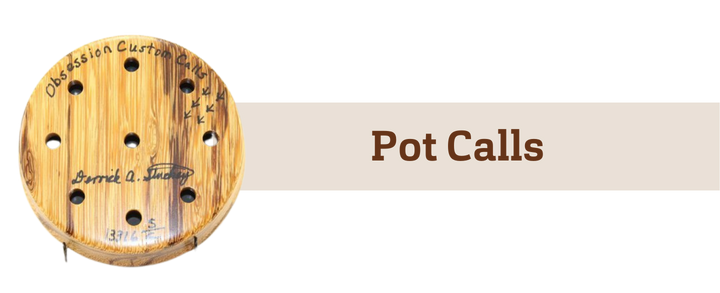
The turkey pot call also known as a friction call uses a “pot” that can have different surfaces from glass to slate and even metal. A “striker” is used to initiate the call when it makes contact with the surface of the pot. These calls are much easier to operate compared to a mouth call, however, it generally requires both hands to operate leaving you at a disadvantage if you lure a turkey into range. The pot calls are known for producing every call in a variety of volume levels from loud to subtle. My go-to pick for a pot call is the hand-made calls from Obsessions Calls. Each one is made one at a time and come in crystal, glass, slate, and aluminum pots. https://obsessioncustomcalls.mysimplestore.com/p/pot-calls
These are just a few of the calls that I have used and there are hundreds of more calls that can be just as useful for you. The most important thing for me is getting out on the land, enjoying our freedoms and Texas heritage, and passing it onto the next generation of Texas hunters.
Salsa Verde & Wild Game from the kitchen of Chef Austin Simmons of Tris
February 11, 2025
Texas’ White Bass Run
February 11, 2025
From the Spring to Spirit: Goodnight Loving Vodka
February 11, 2025